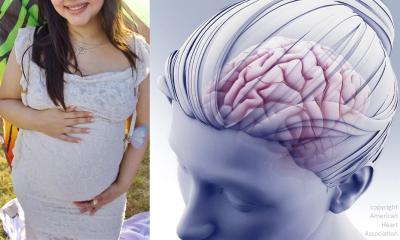News • Duchenne muscular dystrophy
Impact of DMD on the brain may be reversible, study finds
Duchenne muscular dystrophy (DMD), a genetic disorder affecting 1 in 5000 male births, is caused by mutations in the DMD gene.
© Josh Riemer – unsplash.com
While it primarily leads to muscle wasting, a new paper published in Molecular Medicine highlights the molecular underpinning of the devastating neuropsychiatric impact, which shows as learning difficulties, memory impairments, and increased risks of ADHD and autism.
Senior author, Professor Darek Gorecki from the School of Medicine, Pharmacy and Biological Sciences at the University of Portsmouth, says: "For decades, we’ve focused on the muscles as their damage causes death of the patients. But the brain is also deeply affected by DMD. Understanding these changes is crucial to developing treatments that address the full scope of the disease - not just its muscle symptoms."
These findings give hope that we’re not just treating symptoms, we might actually be able to change the trajectory of the disease
Darek Gorecki
Scientists have pinpointed how the absence of full-length dystrophins (a root cause of DMD) in key brain regions alters development and metabolism. Unexpectedly, dystrophic abnormalities vary in different parts of the brain and also alter with time, Crucially, some of these changes could be reversible, opening the door for targeted therapies. “We now understand that these brain abnormalities develop differently in specific brain regions over time, meaning that targeted early intervention could be key”, adds Professor Gorecki. “This discovery gives us real hope that we can improve at least some cognitive and behavioural symptoms in DMD patients.”
Patients with DMD have IQs averaging one standard deviation lower than the general population, with 30% scoring below 70. This is linked to the loss of full-length dystrophins, key proteins essential for muscle and brain function. The study found that:
- The cerebrum (containing hippocampus, cerebral cortex, and amygdala, and the cerebellum are affected differently.
- A leaky blood-brain barrier allows inflammatory molecules released from degenerating muscles to enter the brain, potentially worsening cognitive symptoms.
- The cerebellum, vital for motor learning, but also language and higher cognitive functions, is affected late in its maturation.
Using RNA sequencing and functional brain analyses the team of 21 scientists from eight research centres discovered that some brain changes are present at birth, while others emerge after birth. Professor Gorecki explains: "This means that we have a window of opportunity to intervene. By targeting these defects occurring after birth , we potentially could improve cognitive function in DMD patients."
The study also highlights potential therapeutic strategies. These range from reversing some cognitive symptoms by restoring dystrophin to the brain, using anti-inflammatory treatments to help counteract damage caused by immune system overactivation, and dietary interventions such as the ketogenic diet to boost brain function. "These findings give hope that we’re not just treating symptoms, we might actually be able to change the trajectory of the disease," adds Professor Gorecki.
This research lays the groundwork for targeted brain therapies for DMD, bringing us closer to treatments that address both the muscle and cognitive effects of the disease.
Source: University of Portsmouth
04.04.2025






